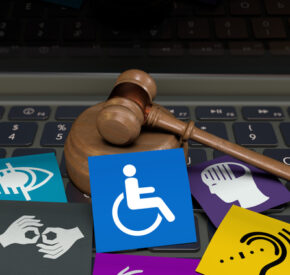The Answer is More Inclusion
Core principles must be regularly examined against the world around us

Most Americans are big fans of the the First Amendment of the Bill of Rights. It is an absolute masterpiece of political thought.
Congress shall make no law respecting an establishment of religion, or prohibiting the free exercise thereof; or abridging the freedom of speech, or of the press; or the right of the people peaceably to assemble, and to petition the Government for a redress of grievances.
Simple, to the point, and overwhelmingly powerful. We strongly believe that we must allow for a cacophony of speech and writings to stretch and fill our physical and digital spaces. With this panoply of poetry and prose, opinion and analysis, to allow the good citizens of our Republic to make up their own minds. Hallelujah!
Pair this wonderful Amendment with Article 19 of the Universal Declaration of Human Rights drafted in 1947 by a committee led by Eleanor Roosevelt and our resolve that there should be free access to information is almost absolute.
Article 19.
Everyone has the right to freedom of opinion and expression; this right includes freedom to hold opinions without interference and to seek, receive and impart information and ideas through any media and regardless of frontiers.
It is highly unlikely that the committee that drafted these words had either anything like the internet nor specifically individuals with disabilities in mind at the time. However, for Tamman’s work, when one reads this with that context, it becomes even more powerful. It is a true call to action, and the relevance today is palpable. Not to mention that if the great Eleanor Roosevelt thought it was a good idea, it probably is.
Why accessibility matters to Tamman
Several years ago, Tamman’s then CEO, Mike Mangos and Chief of Staff Marty Molloy were discussing the big why behind the work in the digital accessibility space. We said out loud, that ‘access to information is a human right’ and instantly knew in our core that it was right for our company. Since that time, Tamman has fully embraced this ethos. It has become Tamman’s rallying cry, our guiding star, and the true north for everyone who works on building the inclusive web. We have been writing and speaking about access to information being a human right consistently. The belief has essentially become religious dogma for us.
However, like any religious dogma, if it is not regularly questioned, an ethos can weaken and lose its value. The years 2020 and early 2021 presented a significant opportunity to examine whether this ethos was indeed as believed or if it remained the optimal approach for Tamman. Amidst rampant misinformation, propaganda surrounding the pandemic, the presidential election, and other news stories, coupled with the pervasive confusion on social media, doubts emerged. Questions arose about the appropriateness of certain statements, the validity of chosen approaches, and even the fundamental nature of access to information as a human right.
When the truth is distorted or when one cannot reasonably even discern what the truth is, should access to the information still be maintained? What if, by providing access to information, one is simultaneously providing access to misinformation? At what point do people unwittingly become puppets to the views of a tyrannical minority who are only concerned with their self-interest and not the common good? When social media decided to close accounts and censor online actors, questions arose about whether this is the right course of action for a free society. These are questions that continue to be pondered and debated.
It is precisely in questioning our beliefs that has strengthened them and the answer remains a resounding yes: access to information is now more crucial than ever. It is messy, it always has been, but the answers lie in trust.
Start a Project
Accessibility Solutions
Empowerment of others and working on the details matter to us. Let us help turn your great idea into something even greater. Take the next step and let’s chat!
Access to information is a human right
Tamman read an article by friend and colleague Nimit Kaur that eloquently argued for both the fundamental right of individuals to access information and the indispensable role of this right in everyday life. As a native screen reader user, Kaur provided concrete examples from social media, applications, and smartphones to illustrate how simple solutions like alt text and prompts enhance accessibility. Some of her examples of information’s use in daily life seemed mundane at first glance. Yet, it dawned on Tamman that commitment to an ideal doesn’t require pursuit of a flawless, idealized version that exists solely in a pristine, grandiose world. Rather, it involves dedication to a full and complete realization, even when it is imperfect, mundane, and deeply ingrained in our lives. One must believe – Tamman must believe – that by amplifying diverse voices, expanding access to information sources, and fostering a cacophony of conversation, a Madisonian philosophy of competing interests will create a stronger foundation for debate. Tamman is not the ultimate arbiter of truth.
Madison tells us that people will always break out into factions and special interests. Those factions will do what they can to communicate their version of the facts. Free speech and the free flow of information across borders and mediums demand that we allow voices to be heard.
It is recognized that this issue extends beyond mere information. In today’s digital landscape, discussing the flow of information necessitates a concurrent discussion on algorithms and distribution mechanisms that foster echo chambers and circular logic. It is understood that these forces, which govern the dissemination of information, significantly impact what individuals can access and consume. There are critical matters here demanding attention. According to Jack Dorsey, then CEO of Twitter, “A company making a business decision to moderate itself is different from a government removing access, yet can feel much the same.” The choices that social media giants made in the wake of the attack on the Capitol to exclude and censor were done because they do not have the answers on how they can simultaneously control and monetize information. It is incumbent upon us to continue to add to the cacophony and make it more and more accessible – to work to break down the silos and echo chambers.
One cannot predict human behavior and if people decided to turn away from verifiable information. They can work in a company like Tamman that ensures that when someone, especially someone with disabilities, needs to access information, they can. The answer is not exclusion, the answer is more and more inclusion. They trust that a world where there is more access to information, where the truth has more outlets to find ears, and eyes and brains that were previously excluded is in fact a more fair and just world. They believe this is a thing worth working towards every day.





